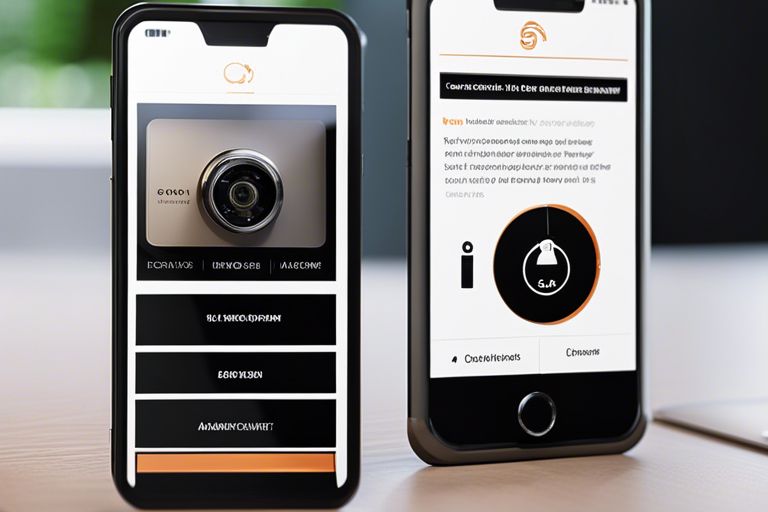Overwhelming options can make choosing the right security products for your e-commerce needs a daunting task. Fear not, as we have curated a list of top-tier security solutions to safeguard your online transactions and data. Your peace of mind is paramount when shopping online, and with these recommended tools, you can shop with confidence knowing your information is protected. Stay informed, stay secure.
Key Takeaways:
- SSL Certificates: SSL certificates are vital for encrypting data exchanged between browsers and servers, providing a secure connection for online transactions.
- Antivirus Software: Antivirus software helps protect your devices from malware and phishing attacks, keeping your personal information safe while shopping online.
- Two-Factor Authentication: Implementing two-factor authentication adds an extra layer of security by requiring a password and a secondary verification method, such as a code sent to your phone, to access your account.
Identifying E-commerce Security Threats
While shopping online offers convenience and a wide selection of products, it also comes with various security threats that you need to be aware of in order to protect yourself. By understanding the types of cyber attacks and common vulnerabilities in e-commerce sites, you can make informed decisions to safeguard your personal and financial information.
Types of Cyber Attacks
An crucial aspect of e-commerce security is recognizing the different types of cyber attacks that can target online shoppers. Being informed about these threats can help you take proactive measures to secure your transactions and personal data. The table below lists the various types of cyber attacks:
| Phishing | SQL Injection |
| Man-in-the-Middle Attacks | DDoS Attacks |
| Ransomware | Cross-Site Scripting (XSS) |
| Malware | Brute Force Attacks |
| Account Takeover | Data Breaches |
Common Vulnerabilities in E-commerce Sites
With the rapid growth of online shopping, e-commerce sites have become prime targets for cybercriminals looking to exploit vulnerabilities for financial gain. Common vulnerabilities in e-commerce sites can include insecure payment gateways, weak password policies, inadequate data encryption, and insufficient regular security updates.
E-commerce platforms may also be vulnerable to attacks such as session hijacking, where a malicious actor gains unauthorized access to a user’s session and takes over their account. By understanding these vulnerabilities, you can take proactive steps to protect your personal and financial information while shopping online.
Essential Security Features for E-commerce
There’s The Top 14 Security Dropshipping Products To Sell that can help safeguard your online shopping experience. In the context of e-commerce security, there are several key features you should look out for to ensure your information and transactions are protected.
Encryption and HTTPS
Encryption is crucial for securing your data when shopping online. Look for websites that use HTTPS, which encrypts data as it travels between your browser and the website’s server. This ensures that sensitive information like credit card details remains private and safe from hackers.
Two-Factor Authentication
For added security, consider using two-factor authentication when making online purchases. This process requires not only a password and username but also something that only the user has on them, such as a piece of information only they should know or have immediately access to. This extra layer of security can prevent unauthorized access to your accounts, even if your password is compromised.
For an extra layer of protection, some e-commerce platforms offer biometric authentication, such as fingerprint or facial recognition, making it even harder for unauthorized users to access your account.
Regular Software Updates
Essential for maintaining security, regular updates to your e-commerce platform and other software ensure that any vulnerabilities are patched promptly. Outdated software is more susceptible to cyber-attacks, so make sure to keep all your systems up to date to protect your personal and financial information.
Ecommerce platforms often release updates that not only enhance security but also improve user experience and functionality. By staying current with updates, you ensure a smoother and more secure online shopping experience.
Top Security Products for E-commerce
Many e-commerce shoppers are concerned about the security of their online transactions. To ensure a safe and secure shopping experience, it is necessary to invest in reliable security products. If you want to learn about the best security services for e-commerce website security, check out this comprehensive guide on 11 Best Security Services For Ecommerce Website Security.
Web Application Firewalls (WAFs)
To protect your e-commerce website from cyber threats and attacks, consider investing in a Web Application Firewall (WAF). WAFs act as a barrier between your website and incoming traffic, blocking malicious activities and ensuring the security of your online store. These security products monitor and filter HTTP traffic to and from a web application, providing an extra layer of protection against vulnerabilities and hackers.
Anti-Malware and Antivirus Software
AntiMalware and antivirus software are necessary tools to safeguard your e-commerce website and customers’ data from malware, viruses, and other online threats. These security products scan and detect malicious software, preventing infections and data breaches. By regularly updating and running scans with anti-malware and antivirus software, you can protect your website and customers’ sensitive information from cyber attacks.
Products such as firewalls, antivirus software, anti-malware, and SIEM systems play a crucial role in securing your e-commerce website. Investing in these security products can help you build trust with your customers, protect your brand reputation, and ensure the safety of online transactions.
Security Information and Event Management (SIEM) Systems
An effective Security Information and Event Management (SIEM) system can help you monitor, detect, and respond to security incidents in real-time. SIEM systems collect and analyze security data from different sources, providing valuable insights into potential threats and vulnerabilities. By implementing a SIEM system, you can proactively manage security risks and enhance the overall security posture of your e-commerce website.
Systems such as SIEM help you centralize security event logs, streamline incident response, and comply with data protection regulations. By leveraging SIEM technology, you can strengthen your e-commerce security strategy and better protect your online business from cyber threats.
Password Management and Authentication
After reading about the 8 Must-Have Security Tools in E-commerce, you understand the importance of securing your e-commerce accounts. Password management plays a crucial role in protecting your sensitive information from potential cyber threats. Using a reliable password manager can help you generate strong, unique passwords for each of your accounts and store them securely. This way, you only need to remember one master password to access all your other credentials. Some popular password managers include LastPass, Dashlane, and 1Password.
Password Managers
Password managers offer a convenient solution for securely storing and managing your login information across various platforms. By using a password manager, you can create complex passwords without the hassle of remembering them all. These tools also offer features like password generation, autofill capabilities, and secure password sharing, making your online shopping experience more secure and hassle-free.
Single Sign-On (SSO) Solutions
One of the most effective ways to streamline the authentication process and enhance security across your e-commerce accounts is by utilizing Single Sign-On (SSO) solutions. With SSO, you can log in to multiple websites and applications using a single set of credentials. This not only simplifies the login process but also reduces the risk of security breaches associated with managing multiple passwords.
With Single Sign-On (SSO) solutions, you can enjoy a seamless authentication experience while ensuring the security of your e-commerce transactions. These tools eliminate the need to remember multiple passwords and provide a centralized way to manage access to your online accounts. By incorporating SSO into your e-commerce security strategy, you can enhance user experience and protect your sensitive information from unauthorized access.
Biometric Authentication
Managers may not be enough to provide robust security for your e-commerce transactions. Biometric authentication adds an extra layer of protection by using your unique physical traits, such as fingerprints or facial recognition, to verify your identity. This advanced form of authentication is difficult to replicate, making it an effective way to prevent unauthorized access to your e-commerce accounts.
Plus, biometric authentication offers a convenient and secure way to access your accounts without the need to remember complex passwords. By incorporating biometric technology into your e-commerce security measures, you can enjoy a seamless and secure shopping experience while keeping your sensitive information safe from cyber threats.
Network and Server Security
Virtual Private Networks (VPNs)
Not all networks are secure, especially when you’re connecting to public Wi-Fi hotspots. That’s where Virtual Private Networks (VPNs) come in. By using a VPN, you can encrypt your internet connection and keep your data safe from prying eyes. This is crucial when you’re handling sensitive information like credit card details or personal data while shopping online.
Server-Side Security Measures
ServerSide Security is an necessary element in safeguarding your e-commerce site. By implementing security measures directly on the server, you can protect your website from cyber threats and unauthorized access. This includes regularly updating software, using strong passwords, and implementing firewalls to monitor and control incoming traffic.
Understanding the importance of Server-Side Security Measures is paramount in ensuring the safety of your online store. By prioritizing server security, you can create a robust defense system against potential threats and vulnerabilities that could compromise your customers’ data.
Network Segmentation
VPNs can enhance your overall network security by implementing Network Segmentation. This practice involves dividing your network into smaller subnetworks, making it more challenging for cybercriminals to move laterally within your system. By segmenting your network, you can isolate valuable data and protect it with additional layers of security.
Virtual Network Segmentation is a powerful tool that allows you to compartmentalize your network, reducing the risk of a security breach affecting your entire system. By creating virtual barriers within your network, you can control access and monitor traffic more effectively, enhancing the overall security of your e-commerce operations.
Payment Security and Compliance
All online shoppers must be vigilant about payment security. Ensuring that your payment information is safe and secure is crucial when making purchases online. Here are some key aspects to consider:
Payment Card Industry Data Security Standard (PCI DSS)
An necessary element of payment security is compliance with the Payment Card Industry Data Security Standard (PCI DSS). This standard is designed to ensure that all companies that accept, process, store, or transmit credit card information maintain a secure environment. By adhering to PCI DSS guidelines, you can protect your customers’ sensitive payment data and reduce the risk of data breaches.
Secure Payment Gateways
Data encryption is a vital component of secure payment gateways. When you enter your payment information on an e-commerce website, it is crucial that the data is encrypted to prevent unauthorized access. Secure payment gateways encrypt your information, making it unreadable to anyone trying to intercept it. This adds an extra layer of security to your online transactions, giving you peace of mind when shopping online.
Secure payment gateways also provide additional security features, such as 3D Secure authentication and tokenization, further safeguarding your payment information from potential threats.
Compliance and Regulations
It’s important to stay informed about the various compliance requirements and regulations surrounding online payments. Different regions may have specific laws governing online transactions and data protection. By understanding and adhering to these regulations, you can ensure that your e-commerce operations are in compliance and that your customers’ data is protected.
Industry standards and best practices are continuously evolving to address new threats and vulnerabilities. Staying current with these developments will help you enhance the security of your online payment processes and maintain customer trust.
Conclusion
Conclusively, when it comes to ensuring the security of your online transactions as an e-commerce shopper, investing in the best security products is crucial. By implementing tools such as a VPN, password manager, and antivirus software, you can significantly reduce the risk of falling victim to cyber threats and protect your sensitive information from being compromised.
Remember that in the digital age, where online shopping has become the norm, taking proactive steps to safeguard your data is crucial. By incorporating these security products into your online habits, you can shop with confidence and peace of mind, knowing that you are doing everything in your power to protect yourself from potential cyber threats.
FAQ
Q: What are the important security products for E-commerce shoppers?
A: The important security products for E-commerce shoppers include antivirus software, secure sockets layer (SSL) certificates, and robust firewall protection. These tools help protect sensitive customer data, prevent malware infections, and secure online transactions.
Q: How do antivirus software and SSL certificates enhance the security of E-commerce websites?
A: Antivirus software scans for and removes malware from devices, protecting both shoppers and merchants from cyber threats. SSL certificates encrypt data transmitted between a web server and a browser, ensuring a secure connection and safeguarding sensitive information like credit card details.
Why is firewall protection important for E-commerce websites?
A: Firewall protection acts as a barrier between a website and external threats, filtering out malicious traffic and preventing unauthorized access to the site’s network. By setting up a firewall, E-commerce businesses can effectively safeguard their online stores and customer data from cyber attacks.






